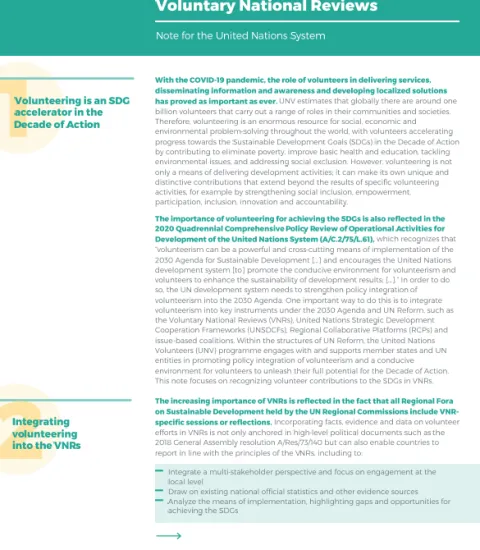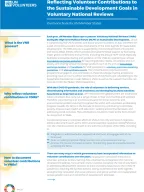
Reflecting Volunteer Contributions to the SDGs in Voluntary National Reviews - Note for UN System
With the COVID-19 pandemic, the role of volunteers in delivering services, disseminating information and awareness and developing localized solutions has proved as important as ever. UNV estimates that globally there are around one billion volunteers that carry out a range of roles in their communities and societies. Therefore, volunteering is an enormous resource for social, economic and environmental problem-solving throughout the world, with volunteers accelerating progress towards the SDGs in the Decade of Action by contributing to eliminate poverty, improve basic health and education, tackling environmental issues, and addressing social exclusion.
The importance of volunteering for achieving the SDGs is also reflected in the 2020 Quadrennial comprehensive policy review of operational activities for development of the United Nations system (A/C.2/75/L.61), which recognizes that “volunteerism can be a powerful and cross-cutting means of implementation of the 2030 Agenda for Sustainable Development […] and encourages the United Nations development system [to] promote the conducive environment for volunteerism and volunteers to enhance the sustainability of development results; […].” In order to do so, the UN development system needs to strengthen policy integration of volunteerism into the 2030 Agenda. One important way to do this is to integrate volunteerism into key instruments under the 2030 Agenda and UN Reform, such as the Voluntary National Reviews (VNRs). Within the structures of UN Reform, the United Nations Volunteers (UNV) programme engages with and supports member states and UN entities in promoting policy integration of volunteerism and a conducive environment for volunteers to unleash their full potential for the Decade of Action. This note focuses on recognizing volunteer contributions to the SDGs in VNRs.





